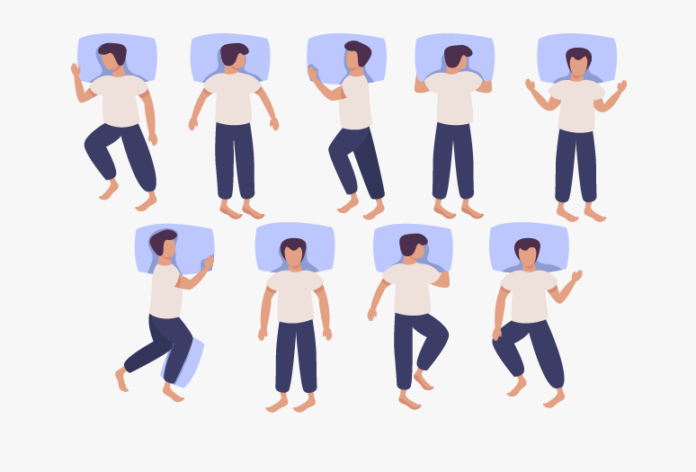Let’s be honest. Even if we don’t get eight hours of sleep, sleep is an important component of our lives, and there’s more to it than you might believe. There’s more to it than laying down and catching some Zzzs if you’re having trouble sleeping or have an injury. Your sleeping posture significantly impacts your sleep quality, so it may be time to switch things up.
The advantages of various sleeping positions vary. If you’re having trouble managing pain or other health difficulties, you may need to change your sleeping posture. While it is unlikely that you will complete it in one night, it is worth attempting.
Taking the time to train yourself to sleep in a different posture gradually could be the key to better sleep quality. If that isn’t something you’re comfortable with, don’t worry about it. To make sure you’re getting the most out of your favourite sleeping position, try changing it.
Each individual is unique. What matters is that you’re doing what’s best for your body and sleep requirements.
Fetal position
This is the most common sleeping position for a reason. The foetal position offers numerous advantages. Sleeping in the foetal position is not only beneficial for lower back discomfort and pregnancy, but it also helps to minimise snoring.
Unfortunately, there are a few drawbacks to sleeping in the foetal position. Make sure your posture is relaxed; otherwise, your cosy position may prevent you from breathing deeply as you sleep. In addition, if you have joint pain or stiffness, sleeping in a tight foetal position may leave you sore the next day.
Sleeping on your side
It turns out that sleeping on your side is beneficial to your health, particularly if you sleep on your left side. It’s not only good for your snoring, but it’s also good for your digestion and may even assist with heartburn.
A previous study looked at ten persons over two days. After eating a high-fat lunch on the first day, participants rested on their right side and switched to the left side for the second. Even though this was a tiny trial, researchers discovered that sleeping on the right side increased heartburn and acid reflux, suggesting that swapping sides at night may be a good idea.
On the other hand, sleeping on your side isn’t always the ideal option, and it can cause stiffness in your shoulders and tightness in your jaw on that side. Furthermore, evidence suggests that sleeping on your side may cause wrinkles.
Placing a pillow between your lower legs can help you avoid low back pain by properly aligning your hips.
Lying on your stomach
Lying on your stomach might be near the bottom of the list if we had to rank sleeping positions. While it’s an advantageous position for snoring or sleep apnea, it’s not ideal for everyone. The advantages of Trusted Source don’t go any further.
However, sleeping on your stomach can cause neck and back pain, and it can also put undue strain on your muscles and joints, which is why you may feel painful and tired in the morning. Placing a pillow beneath your lower belly button may assist in alleviating back pain.
Flat on your back
The healthiest position to sleep in is on your back, and it not only makes protecting your spine easier but can also ease hip and knee pain.
According to the Cleveland Clinic, sleeping on your back uses gravity to keep your body in a precise alignment over your spine, which can help relieve pressure on your back and joints. A pillow behind your knees might assist support your back’s natural bend.
If you’re concerned about wrinkles, sleeping on your back protects your skin from the pillow or gravity-induced creases.
On the other hand, sleeping on your back can be problematic for those who suffer from snoring or sleep apnea. It’s even more difficult for anyone who already suffers from back discomfort, which is why you should make sure you’re well-supported.
The takeaway
Sleeping — or striving to sleep — takes up nearly one-third of our lives. Your sleeping position is more important than you may realise, and sleep deprivation can hurt your health. Furthermore, sleep deprivation is about more than just obtaining enough sleep; sleep quality is also important.
If you don’t feel refreshed when you wake up, make an effort to develop appropriate sleeping habits. Incorporating sleep hygiene into your daily routine will significantly improve your sleep quality:
- avoid excess caffeine
- exercise regularly
- establish a nightly schedule that helps you relax and prepare for sleep
Try keeping a sleep diary for a week or two. You can keep track of any patterns in your sleep habits — and sleep quality — so you can get a better look at what’s working versus what isn’t.
Remember, you don’t have to change your sleep position if you aren’t having any issues. Do what feels best for you. The most important thing is to make sure you’re waking up feeling rested and ready to go.




